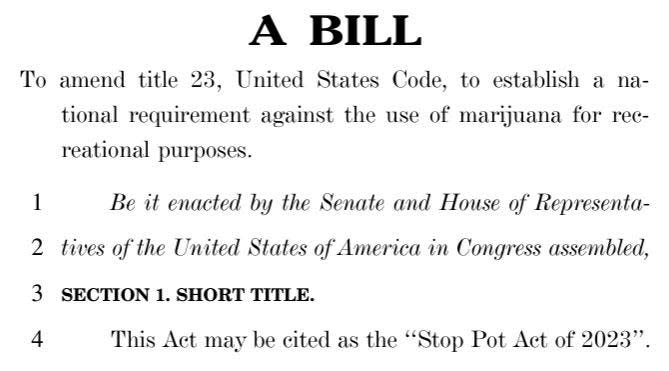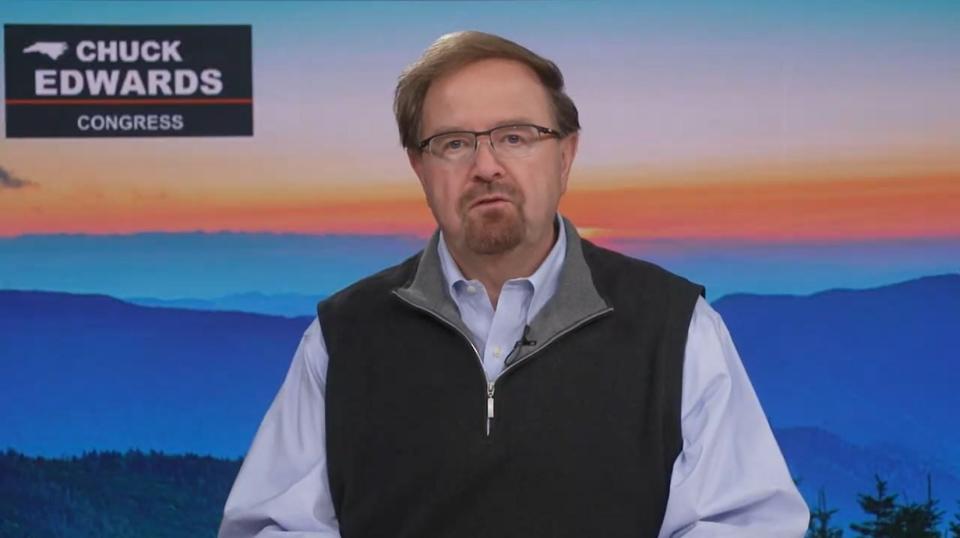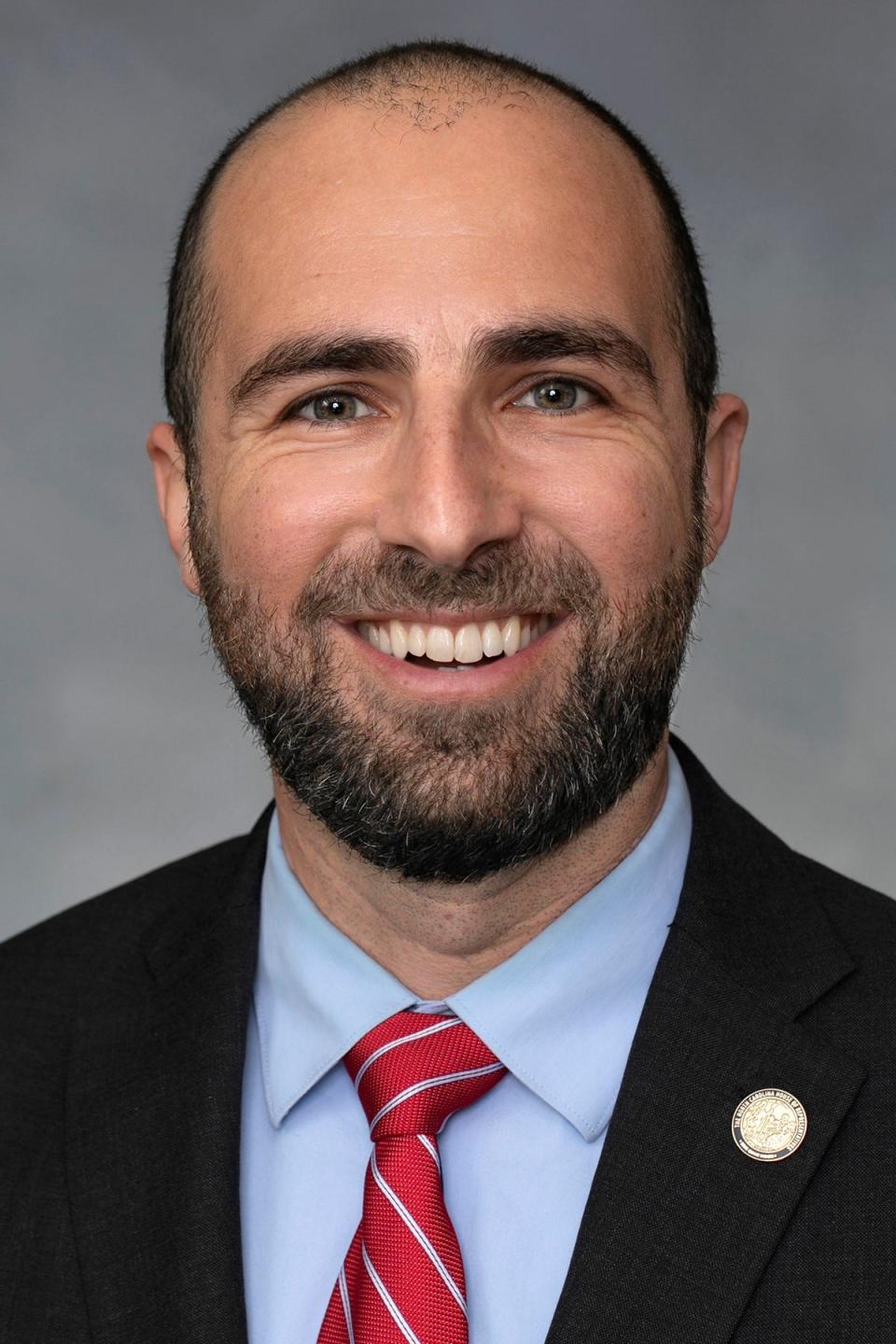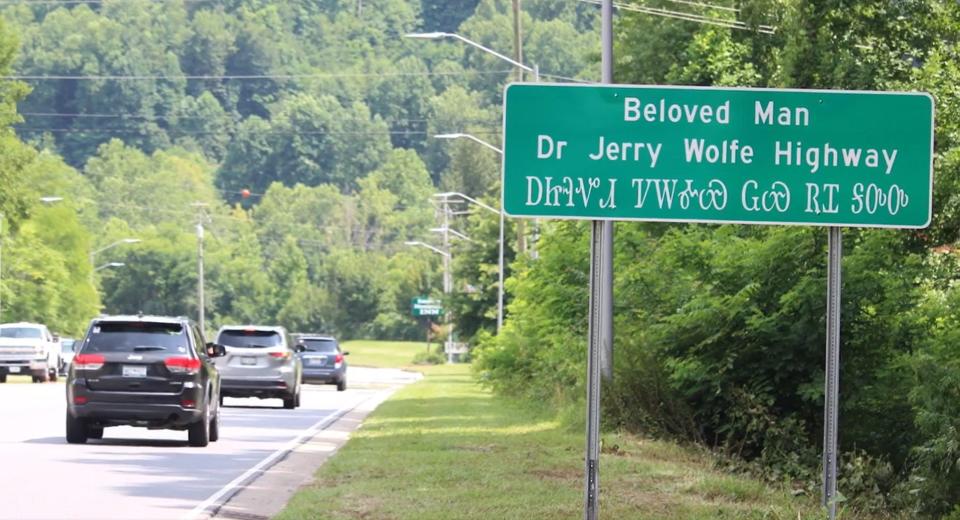As Cherokee plan NC's 1st legal pot sales, lawmakers erect barriers: question casino money

As the Cherokee make plans to sell the state's first legal cannabis a month from now, key federal lawmakers have thrown up barriers that range from threatening the loss of road money to prodding the nation's top criminal prosecutor.
The head of the Cherokee-owned Qualla Enterprises announced plans to open a cannabis dispensary on tribal lands in Western North Carolina on April 20 ? or 4/20, a day that's become known internationally as an annual celebration of marijuana. Sales would be limited to those with medical marijuana cards, though the tribe is moving to expand that and change its laws after voters approved a September 2023 referendum to legalize recreational pot.
But the member of Congress whose district includes the Cherokee's Qualla Boundary lands, Chuck Edwards, and the state's two senators, Thom Tillis and Ted Budd, have taken various steps to tamp down the party. All three are Republicans. One, Edwards, is up for reelection Nov. 5.
Stop Pot Act
On Sept. 1, 2023, Edwards introduced House Resolution 5323, the "Stop Pot Act," which would penalize states and tribes with legalized marijuana, taking 10% of their federal highway funds.
In introducing the bill, Edwards, a first-term House member for WNC's District 11, said in a news release that the act comes at a time of "unprecedented crime, drug addiction and mental illness" and would "help prevent even greater access to drugs and ease the strain placed on our local law enforcement and mental health professionals who are already stretched thin."

Edwards cited the controlled Substances saying the federal law classifies recreational marijuana as a Schedule I drug, the same as heroin and LSD, which the act says has no acceptable use and a high potential for abuse. Still, he said, the Stop Pot Act would not forbid medical use prescribed by a licensed professional.
The bill, though, has failed to advance past a Sept. 5 referral to a subcommittee under the Transportation and Infrastructure Committee.
Some have noted blowback from the bill, with Western Carolina University political science professor Chris Cooper saying it may not have come across as Edwards thought. "A lot of folks took that as an attack on Cherokee sovereignty, fairly or unfairly," Cooper said.
Questioned by the Citizen Times March 19, Edwards stood by the legislation.
“I remain steadfast in my opposition of legalizing recreational marijuana in the mountains of Western North Carolina," he said in a statement issued through spokesperson Maria Kim. "The data is overwhelming on the harmful effects of marijuana, and my views on protecting our youth have not changed."
As for the bill's lack of progress, Edwards said, "as with any bill" its fate was "up to the committee."
Cherokee leaders, including Chief Michell Hicks, did not respond to requests for comment. But in a Sept. 6 editorial in the tribe's official newspaper, the One Feather, tribal officials pushed back on claims about the negative effects of marijuana, saying studies by entities such as the University of Pittsburgh School of Public Health actually show a correlation with lower hard drug use and less crime.
"Numerous studies have identified several other ways that Adult Use Cannabis actually decreases crime and promotes public health and order," they said.

Caleb Rudow, an Asheville Democratic N.C. General Assembly member challenging Edwards in the Nov 5 election, sought to link the bill to tribal self-governance and the congressman's opposition to abortion access.
"The supposed party of personal liberty sure doesn’t seem to respect tribal sovereignty or the rights of adults to make their own decisions about their bodies, whether that’s concerning cannabis or reproductive rights," Rudow said in a statement to Citizen Times.
Attorney General, DEA, SBI, others
On March 1, Tillis and Budd sent a letter to eight government officials with pointed questions about the legalization. On the receiving end were U.S. Attorney General Merrick Garland, DEA Administrator Anne Milgram, Interior Secretary Deb Haaland, U.S. Treasury Financial Crimes Enforcement Network Andrea Gacki and National Indian Gaming Commission Vice Chair Jeannie Hovland.
State and local officials also were included. They were the district attorney for WNC's far west counties Ashley Hornsby Welch; Curtis Cochran, sheriff of Swain County, which borders Qualla; and State Bureau of Investigations Director Bill Schurmeier.
"In recent months we have heard directly from North Carolinians who have communicated their concerns about the Eastern Band of Cherokee Indians (EBCI) and Qualla Enterprise LLC establishing an operation to produce, cultivate and sell marijuana," Budd and Tillis said. "As our nation is facing an unprecedented drug crisis that is harming our communities, it is vital to learn what measures your departments and agencies are taking to uphold current federal and state laws."
Spokespeople for the senators did not respond to questions about if and how the officials answered. They also did not respond to a question about an apparent mistake in the letter in which they describe a problem the tribe is facing transporting the cannabis. Tillis and Budd said they understood the marijuana was being grown outside Qualla Boundary. In fact, the marijuana is being grown inside Qualla Boundary, but to move it from that site the tribe must use a road that winds outside the tribal lands before reentering Qualla. That has drawn a warning from Cochran, the Swain sheriff.
In October 2023 Qualla Enterprises General Manager Forrest Parker told the Tribal Council they were looking at other roadways or flying the cannabis.

In their letter, the senators posed 19 questions directed at various officials, such as Garland, whom they asked if tribes were immune from the Controlled Substances Act, and Milgram, whom they asked if the DEA was concerned about transnational criminal organizations coming to the area.
To Welch, they asked if as DA she was "working with the county sheriff to enforce North Carolina's marijuana statutes?"
The Citizen Times reached out to all the officials. A spokesperson for the gaming commission said, "NIGC responded and provided information on the agency's role as outlined in Indian Gaming Regulatory Act," and referred to an Oct. 28, 2021, bulletin. It recommended that tribes not use casino money to fund cannabis operations, saying the act forbids it.
SBI spokesperson Anjanette Grube said Schurmeier was out of town, and she knew of no response from him. A spokesperson for Welch said she was out of town but working on a letter of response.
'Misinformation,' 'inflammatory language'
Tribal authorities responded with their own letter March 6, according to the Cherokee One Feather, saying the senators statements were "replete with misinformation and inflammatory language that promote fear and misunderstanding."
The tribe was attempting to sell medical marijuana "with careful and thorough consideration of all the legal and policy implications of this industry," said the response, adding they had been open with law enforcement and regulatory bodies about an industry already legal in 36 states, the District of Columbia and other tribal lands.
"It’s a shame that Sen. Tillis and Sen. Budd did not respectfully communicate their concerns directly to Eastern Band Cherokee leaders, instead choosing a frontal attack on Cherokee sovereignty," they said.
Along with the response, the tribe looks to have been active in Raleigh, where, according to the Raleigh News and Observer, N.C. House Speaker Tim Moore on March 13 said special interests had been pushing heavily on issues, such as cannabis.
“There’s all sorts of outside groups that are interested in one thing or another, of course, I think between gaming and marijuana about every lobbyist in the whole lobbying community has been retained on one side or another at this point,” Moore said.
More: Most Americans want legal pot. Here's why feds are taking so long to change old rules.
Cherokee tribal police face no criminal charges in shooting of unarmed man in his home
Joel Burgess has lived in WNC for more than 20 years, covering politics, government and other news. He's written award-winning stories on topics ranging from gerrymandering to police use of force. Got a tip? Contact Burgess at [email protected], 828-713-1095 or on Twitter @AVLreporter. Please help support this type of journalism with a subscription to the Citizen Times.
This article originally appeared on Asheville Citizen Times: As Cherokee plan NC's 1st legal pot sales, lawmakers erect barriers
